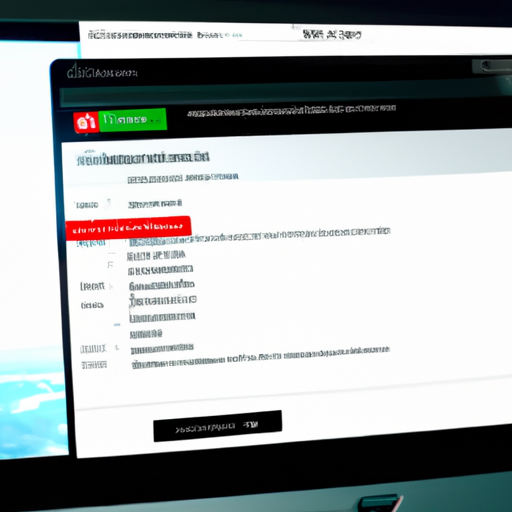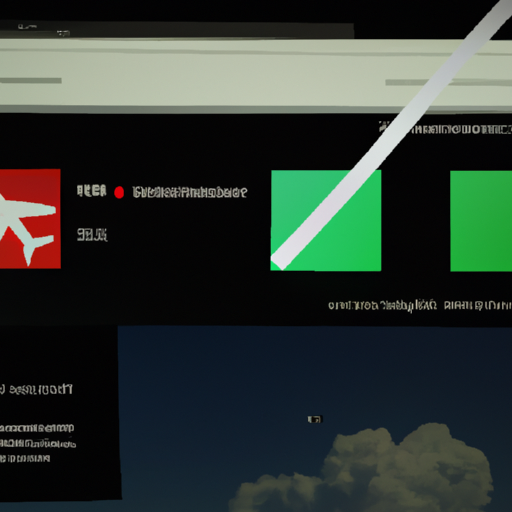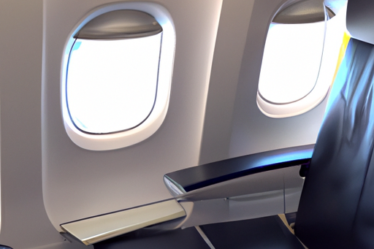
The Impact of Airlines’ Attempts to Block Websites Scraping Award Seats
Airlines have been facing a growing problem in recent years – websites that scrape their award seats. These websites use automated tools to gather information about available award seats from various airlines and then display them on their own platforms. While this may seem like a convenient service for travelers, it has raised concerns among airlines who argue that it undermines their ability to manage their award programs effectively.
One of the main issues airlines have with these websites is that they often display inaccurate or outdated information. This can lead to frustration for travelers who rely on these websites to find award seats, only to discover that the seats they thought were available are actually not. Airlines argue that this not only creates a poor customer experience but also damages their reputation.
To combat this problem, airlines have been taking various measures to block these websites from scraping their award seats. One common approach is to use technology that detects and blocks automated scraping tools. By doing so, airlines hope to ensure that only accurate and up-to-date information is available to travelers.
However, these attempts to block scraping websites have not been without controversy. Some argue that airlines are simply trying to protect their own interests and limit competition. They argue that these websites provide a valuable service to travelers by aggregating information from multiple airlines, making it easier for them to find award seats. By blocking these websites, airlines are effectively limiting travelers’ options and making it more difficult for them to find the best deals.
Another concern is that blocking scraping websites could lead to a lack of transparency in the award seat market. Without these websites, travelers would have to rely solely on the information provided by airlines themselves. This could potentially lead to a situation where airlines have more control over the availability and pricing of award seats, making it harder for travelers to find the best deals.
Despite these concerns, airlines argue that blocking scraping websites is necessary to protect the integrity of their award programs. They argue that these programs are designed to reward loyal customers and provide them with exclusive benefits. By allowing scraping websites to freely access and display award seat information, airlines believe that the value of these programs is diminished.
In conclusion, airlines’ attempts to block websites scraping award seats have had a significant impact on the travel industry. While airlines argue that these measures are necessary to protect their award programs and ensure accurate information for travelers, others argue that they limit competition and transparency. As the debate continues, it remains to be seen how airlines and scraping websites will find a balance that benefits both parties and ultimately provides the best experience for travelers.
Strategies for Overcoming Airlines’ Blocking of Websites Scraping Award Seats

Airlines’ Attempts to Block Websites Scraping Award Seats
Are you tired of spending hours searching for award seats on airline websites, only to come up empty-handed? Well, you’re not alone. Many frequent flyers have experienced the frustration of trying to find available award seats, only to be met with limited options or no availability at all. But why is it so difficult to find these coveted seats? The answer lies in the airlines’ attempts to block websites from scraping their award seat inventory.
In recent years, airlines have become increasingly savvy when it comes to protecting their award seat inventory. They have implemented various strategies to prevent websites from scraping their data, making it harder for travelers to find and book award seats. One of the most common methods used by airlines is the use of CAPTCHAs, those annoying puzzles that require you to prove you’re not a robot. While CAPTCHAs may be effective at deterring automated scraping tools, they can also be a major inconvenience for travelers who just want to find and book a flight.
Another strategy employed by airlines is the use of dynamic pricing. Instead of offering a fixed number of award seats at a set price, airlines now adjust the number of seats available and the price of those seats based on demand. This makes it much harder for websites to accurately scrape and display award seat availability, as it is constantly changing. While dynamic pricing may benefit the airlines by maximizing revenue, it can be frustrating for travelers who are trying to find the best deal.
So, what can you do to overcome these obstacles and find those elusive award seats? Here are a few strategies to help you navigate the airlines’ attempts to block websites from scraping their award seat inventory.
First and foremost, it’s important to be persistent. Don’t give up after a few unsuccessful searches. Keep trying different dates, times, and destinations. Award seat availability can vary greatly depending on the day of the week and the time of year, so it’s worth exploring different options.
Secondly, consider using multiple search engines and websites. While some airlines may block certain websites from scraping their data, others may not. By using a variety of search engines and websites, you increase your chances of finding available award seats. Additionally, some websites specialize in searching for award seats and may have access to inventory that other sites do not.
Another strategy is to be flexible with your travel plans. If you have a specific destination in mind, consider being open to alternative airports or dates. Sometimes, a small change in your itinerary can make all the difference in finding available award seats. Additionally, consider booking your award seats well in advance. Airlines often release award seat inventory several months in advance, so booking early can increase your chances of finding availability.
Lastly, consider joining a frequent flyer program. Many airlines reserve a certain number of award seats exclusively for their loyalty program members. By joining a frequent flyer program and accumulating miles, you may have access to a wider range of award seat options.
In conclusion, while airlines’ attempts to block websites from scraping their award seat inventory can be frustrating, there are strategies you can employ to overcome these obstacles. By being persistent, using multiple search engines and websites, being flexible with your travel plans, and joining a frequent flyer program, you can increase your chances of finding and booking those coveted award seats. So, don’t give up hope – with a little perseverance and creativity, you’ll be jetting off to your dream destination in no time.
The Legal and Ethical Implications of Airlines’ Actions Against Websites Scraping Award Seats
Airlines have been making efforts to block websites from scraping award seats, but this action raises both legal and ethical concerns. Scraping refers to the process of extracting data from websites, and in this case, it involves gathering information about available award seats on airlines’ websites. While airlines argue that scraping disrupts their business model, critics argue that it limits transparency and hinders consumers’ ability to find the best deals.
From a legal standpoint, airlines have the right to protect their websites from unauthorized access. They invest significant resources in developing and maintaining their online platforms, and scraping can strain their servers and impact the user experience for legitimate customers. In response, airlines have implemented various measures to block scraping, such as using CAPTCHAs or IP blocking. These measures aim to deter automated bots from accessing their websites and gathering data.
However, the legality of blocking scraping is not clear-cut. Some argue that scraping is protected under fair use, as it involves extracting publicly available information. Others contend that scraping violates the Computer Fraud and Abuse Act, which prohibits unauthorized access to computer systems. The legal landscape surrounding scraping is still evolving, with courts issuing conflicting rulings on the matter. As a result, airlines’ attempts to block scraping may face legal challenges in the future.
Beyond the legal implications, there are ethical concerns surrounding airlines’ actions against scraping. Critics argue that blocking scraping limits transparency in the airline industry. By preventing third-party websites from accessing award seat data, airlines make it harder for consumers to compare prices and find the best deals. This lack of transparency can lead to higher prices and reduced competition, ultimately disadvantaging consumers.
Moreover, scraping can benefit consumers by providing them with more options and information. Third-party websites that scrape award seat data often aggregate information from multiple airlines, allowing users to compare and choose the most suitable option. This increased competition can drive down prices and improve the overall travel experience for consumers. By blocking scraping, airlines may be limiting consumers’ ability to make informed decisions and find the best value for their money.
In response to airlines’ actions, some scraping websites have resorted to legal action. They argue that scraping is essential for their business model and that blocking it unfairly restricts competition. These legal battles further highlight the complex nature of the issue and the need for a balanced approach that considers both the airlines’ concerns and the interests of consumers.
In conclusion, airlines’ attempts to block websites from scraping award seats raise both legal and ethical implications. While airlines have the right to protect their websites, the legality of blocking scraping is still uncertain. Moreover, blocking scraping limits transparency and hinders consumers’ ability to find the best deals. As the legal landscape evolves, it is crucial to strike a balance between protecting airlines’ interests and ensuring a fair and competitive marketplace for consumers.


